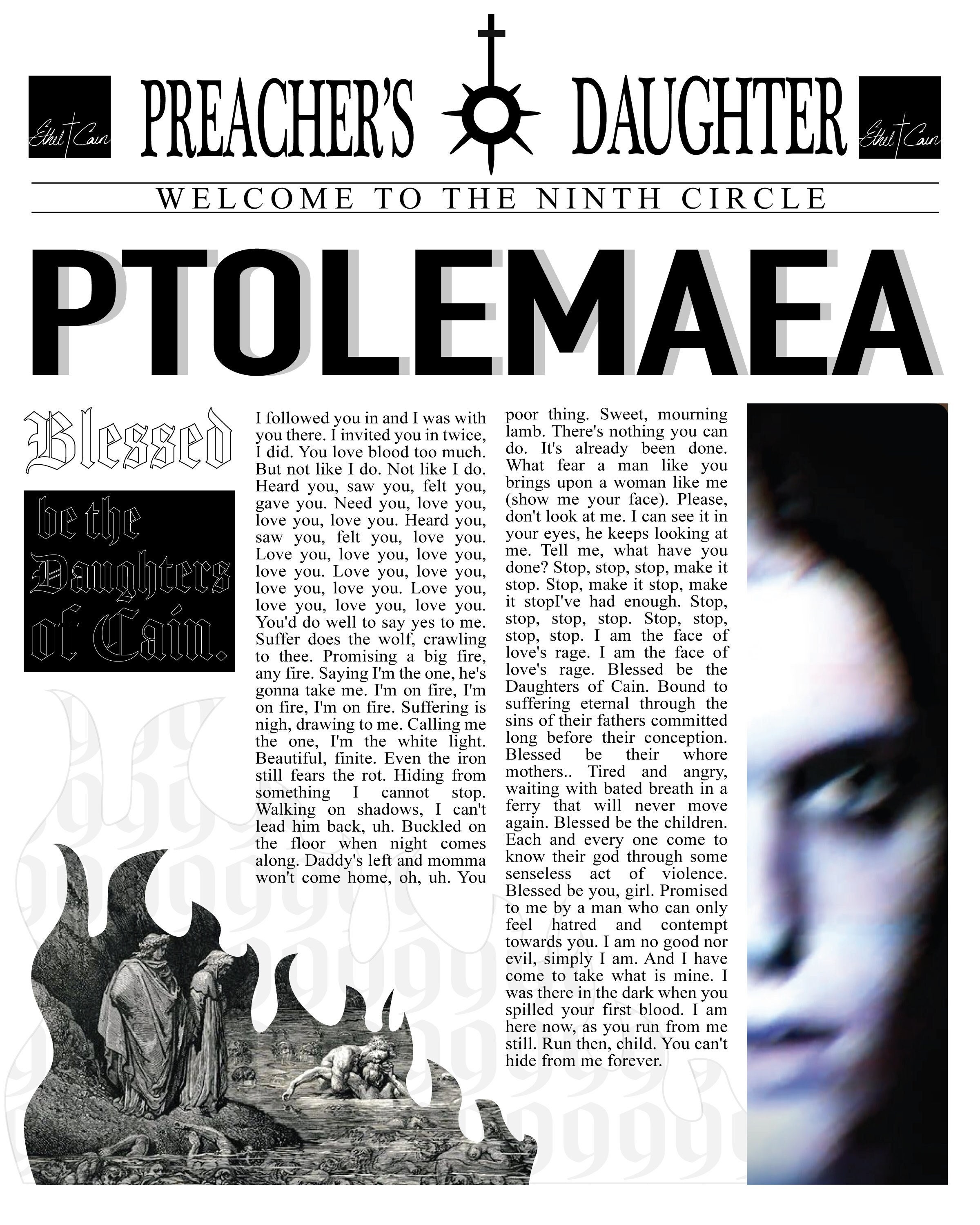How does one even begin to unravel the pronunciation of "Ptolemaea," a word that seems to dance on the edge of both the academic and the enigmatic? The correct pronunciation of "Ptolemaea" is crucial to unlocking its deeper meaning, especially within the context of Dante's Inferno and Ethel Cain's haunting song.
Welcome to a linguistic exploration, a comprehensive guide that seeks to illuminate the proper enunciation of "Ptolemaea." The journey will delve into both the formal and informal approaches, offering a nuanced understanding of a word rich in historical and artistic significance. Whether you're a music aficionado, a scholar of classical literature, or simply a curious mind, this guide is designed to demystify the complexities of this compelling word. The word itself is a bridge between the ancient and the contemporary, a thread that connects the past to the present.
Before delving into the pronunciation, it's crucial to establish a foundation of understanding. "Ptolemaea" isn't just a collection of letters; it carries weight, imbued with meaning and context. As mentioned in the provided context, the word derives its meaning from the betrayal of a guest, a concept rooted in Dante Alighieri's depiction of the ninth circle of hell in his Inferno. This historical weight is further amplified by the artistic interpretations it has inspired.
The exploration will also touch upon the origins of "Ptolemaea," its role in Dante's Inferno, and its subsequent adoption by contemporary artists. We will unpack its linguistic components, breaking down the word to reveal its core phonetic structure. With the aid of pronunciation guides and audio examples, this guide will empower you to confidently and accurately pronounce this captivating word.
Ethel Cain's "Ptolemaea" is more than just a song; it's a journey. Released on her debut album, "Preacher's Daughter," on May 12th, 2022, the track holds a special place in Cain's artistic journey. The song, the ninth track on the album, showcases Cain's ability to weave intricate narratives through music. The song was written solely by Ethel Cain and produced alongside Matthew Tomasi.
The creation of "Ptolemaea" is not a solitary event; it's a collaboration. Cain, the visionary behind the track, worked alongside Matthew Tomasi, who also shares a producing credit on the project. This collaborative spirit is a hallmark of Cain's artistic process.
The genesis of "Ptolemaea" is marked by the dedication of those involved. The team worked hard to give life to this project. The original working title for the song was "Sempervirens," as revealed through a demo released by Hayden herself. The shared link to the demos allowed the listeners and the fans to have an exclusive look into the making of the song.
The song is a tapestry of emotions. The opening lines, "I followed you in and I was with you there / I invited you in twice, I did," set the tone. The lyrics create a landscape of commitment, the song draws listeners into a world of intense emotions, offering a glimpse into the heart of the story. The use of vivid imagery and recurring themes contributes to the narrative's depth.
This is a song of the ninth circle of hell, designed for traitors. The song is a vivid exploration of themes that range from desire and obsession to suffering, all within the context of destructive relationships. The lyrics are designed to convey both the emotional intensity and the complex dynamics of such relationships. This makes the song have a lingering effect on the listener.
The song is not just a piece of music, but a symbol of betrayal. The story is filled with imagery and repetition, creating an atmosphere of unease. The song is a conversation between the deep voice, the devil, and the singer. The prayer of "blessed be" repeated in the end may be a prayer to the devil.
Ptolemy, son of Abubus, served as the governor of Jericho around 130 BC, as documented in the First Book of the Maccabees. His actions led to the demise of Simon Maccabees.
The name "Ptolemaea" is not just a random choice. It's a specific reference to Dante's Inferno. The choice of this name underscores the deliberate engagement with themes of betrayal and punishment.
The release of "Ptolemaea" on May 12th, 2022, marked a significant moment for Cain, as it was a song off of her debut album, "Preacher's Daughter". "Ptolemaea" which was created on May 13, 2019, is the ninth track on the album, showcasing Cain's lyrical prowess and musical storytelling capabilities.
The song delves into themes of intense desire, suffering, obsession, and the complex dynamics of destructive relationships. The lyrics utilize potent imagery and repetition to convey the emotional weight and intricacy of the narrative, leaving a lingering impression on the listener.
The performance of "Ptolemaea" at the Fonda Theatre in Los Angeles on November 4, 2022, was a memorable occasion. The event, "Hallowed Eve with Ethel Cain / Hayden Anhedonia," captured the song's captivating nature.
The core message of the song is the narrative of the song, which is full of commitment and potential obsession, which can be seen through the opening lyrics. The song reflects the artist's willingness to show the most personal aspect of life through her art.
According to a friend of Hayden's, "Ptolemaea is a circle of hell designed for traitors against guests in the home and isn't just something she chose randomly for a title."
The word "Ptolemaea" holds a significant meaning in Dante's Inferno. The word refers to a circle of hell. This shows its importance in Cain's song and in the whole story.
In June 2022, a demo version of the song, known as "Sempervirens," was leaked. The demo version was shared by Hayden herself, sharing a link to the demo's file.
Hayden's friend's explanation highlights that "Ptolemaea" is not just a title; it is deeply rooted in the concept of betrayal. This depth of meaning gives an extra layer of significance to Ethel Cain's song.
The impact of "Ptolemaea" by Ethel Cain lies in the depth of its themes and its profound impact on the audience. It showcases a strong narrative with intricate emotions and imagery.
To pronounce "Ptolemaea" correctly, start with "Tol," as in "toll." Then, add "eh," as in the beginning of the word "effort." Follow with "may," as in the month of May. Finally, conclude with "ah," similar to the "a" in "father." So, the pronunciation is: Tol-eh-may-ah. The emphasis is on the second syllable, "may." Mastering the pronunciation is a step in fully appreciating the meaning.
The word has different pronunciation in different accents. It may vary from American to British. The pronunciation is a part of the word that brings value to the song.
The pronunciation of the word is not a matter of indifference, it brings value to the artistic impact of the song. The song and the word provide a rich context and deep meanings.
Let's look at how to pronounce some other similar words. This includes words like "Ptolemy" and "Ptolemais," which are frequently associated with "Ptolemaea."
The word "Ptolemy" (which means "the son of mennaeus") can be pronounced as: "TAH-luh-mee". This is the English pronunciation. The emphasis is on the first syllable, "TAH."
The word "Ptolemais" is pronounced as "tah-LEH-meez". Here, the emphasis is on the second syllable, "LEH."
Understanding these pronunciation is essential. They provide a sense of historical and cultural meaning to the songs.
The choice of the word is not just to create a song, but it's to engage with themes of betrayal and the punishments for betrayal. This highlights the care put into the song. The artist aims for a deeper exploration of complex human emotions.
The song "Ptolemaea" highlights the artist's artistic approach of combining personal experiences. It uses detailed storytelling that highlights deeper themes. This level of storytelling elevates the song from a simple musical piece to an immersive experience.
By paying attention to the pronunciation, and the historical context of this song, we get a better sense of the song.
The song is an exploration of desire, suffering, and obsession, and the artist's willingness to show the most personal aspect of life through her art.
To understand the depth of "Ptolemaea," one must start with its pronunciation. Mastering its enunciation opens the door to appreciating the word's multifaceted significance. The word is a key to a story full of emotions and the power of music.
The use of the word also highlights the artist's ability to draw the audience into the world she has created. The use of deep meaning helps listeners to look beyond the surface of the song.
The core concept is that the word is a reference to Dante Inferno's ninth circle of hell. This circle is designed for those who have betrayed their guests, and the artist has added her perspective to the story.


